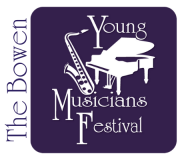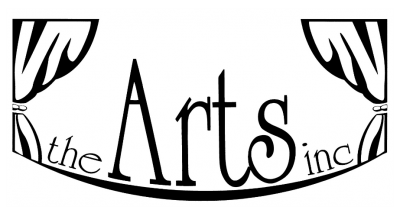Clinician Instructions
Many Thanks in advance for all your efforts in helping make the Bowen Young Musicians Festival run smoothly & successfully. Below are some instructions regarding your duties as a clinician.
Evaluation Forms
- Use a pencil: You might end up tweaking the scores during the first few performances as you get a feel for what each group is like in their abilities.
- Evaluation Baseline: Use the Excellent category as the average, and when someone does something above average move the score up and vice versa. (We want performers to receive positive encouragement and feel good about their YM Festival experience, but we don’t want top scores given freely.)
- Docking Protocol: Please don’t dock performers in more than one category for a particular weakness.
- Scoring: Give an actual score for each category on the form in order to determine 1st, 2nd, and 3rd place winners in each bracket. (Don’t just circle a rating.)
- Consistency: Try to keep scoring even among all brackets. For example, don’t go easier on the younger students.
- Accurate Scoring: Give a score indicative of memorization success, with zero indicating the use of music.
- Totaling Scores: Don’t worry about filling in the Total Score or the Superior-ranked box. The front desk does that.
Adjudication
- Time Allotments: Each performer has enough time allotted to perform their piece and receive verbal feedback directly afterward.
- Younger Students: Usually get about 1-2 minutes
- Older Students: Get approximately 4-6 minutes.
- Remaining Time: Be sure to leave some time in each allotment period to finish up the evaluation forms. Your room helper can be useful in keeping track of the time so you can keep to the schedule.
- Positive Feedback: We want performers to feel positive about their YM Festival experience and be encouraged musically.
- Focus on the good things in their performances first.
- Give honest and sincere praise. Young students will especially benefit from this approach.
- Suggest ways to improve. Older students will appreciate this type of feedback along with honest praise.
- Equal Attention To All: Most performers choose to compete, but we don’t want that to be the focus. This isn’t a somber, ultra-serious competition, but a friendly one. Competitors and non-competitors are mixed in groups and receive the same attention.
Certificates
- Sign the whole stack with a pen before you begin adjudications.
Performance Groups
All performers are assigned a performance group in their grade bracket. The set-up is very similar to a master class in that several students perform together and benefit from the feedback given to
each one. The differences areThat evaluation forms need to be completed,
All students in the group get to perform instead of just a few,
The verbal feedback time per student is shorter.
Participants range in age from very young beginners to adults.
Honors Concert Recommendations
- Record Impressions: Between performance groups, or before the evaluation forms for an age bracket are sent to the front desk, record impressions of performances that could be worthy for recommendation to the Honors Concert. You should
- Consider the performer’s “total performance package,” making note of those students that set themselves apart in more ways than just superb technical performance.
- Evaluate such things as memorization (especially piano and vocal), stage presence, or audience appeal.
- Ultimately you get to pick your favorites without a need to justify them.
- Some age brackets have more than one performance group.
- Scratch paper is provided.
- After All Performances: Fill out the Honors Concert Recommendations sheet. Top performers who are most likely to give a solid performance should be ranked highest.
- Brackets will only be represented if there is at least one solid performer ready.
- The Festival Committee will use your recommendations to determine the final list.
Room Helper
- Use your Room Helper as much as possible for paperwork, schedule flow, etc.

